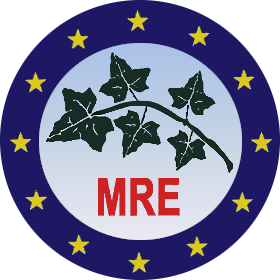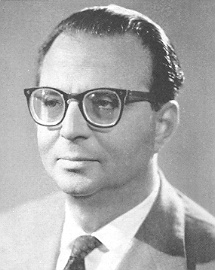
The European Republicans Movement is a minor social-liberal political party in Italy.

The Italian Republican Party is a political party in Italy established in 1895, which makes it the oldest political party still active in the country. The PRI identifies with 19th-century classical radicalism, as well as Mazzinianism, and its modern incarnation is associated with liberalism, social liberalism, and centrism. The PRI has old roots and a long history that began with a left-wing position, being the heir of the Historical Far Left and claiming descent from the political thought of Giuseppe Mazzini and Giuseppe Garibaldi. With the rise of the Italian Communist Party and the Italian Socialist Party (PSI) to its left, it was associated with centre-left politics. The early PRI was also known for its anti-clerical, anti-monarchist, republican, and later anti-fascist stances. While maintaining those traits, during the second half of the 20th century the party moved towards the centre on the left–right political spectrum, becoming increasingly economically liberal.
Liberalism and radicalism have played a role in the political history of Italy since the country's unification, started in 1861 and largely completed in 1871, and currently influence several leading political parties.

Ferruccio Parri was an Italian partisan and anti-fascist politician who served as the 29th Prime Minister of Italy, and the first to be appointed after the end of World War II. During the war, he was also known by his nom de guerreMaurizio.

Pietro Sandro Nenni was an Italian socialist politician and statesman, the national secretary of the Italian Socialist Party (PSI) and senator for life since 1970. He was a recipient of the Lenin Peace Prize in 1951. He was one of the founders of the Italian Republic and a central figure of the Italian political left from the 1920s to the 1960s.

The Movement for Autonomy is a regionalist and Christian-democratic political party in Italy, based in Sicily. The MpA, whose founder and leader is Raffaele Lombardo, advocates for greater economic development, autonomy and legislative powers for Sicily and the other regions of southern Italy.
The Republican Left was a social-liberal political party in Italy.
The Action Party was a liberal-socialist political party in Italy. The party was anti-fascist and republican. Its prominent leaders were Carlo Rosselli, Ferruccio Parri, Emilio Lussu and Ugo La Malfa. Other prominent members included Leone Ginzburg, Ernesto de Martino, Norberto Bobbio, Riccardo Lombardi, Vittorio Foa and the Nobel-winning poet Eugenio Montale.

Giustizia e Libertà was an Italian anti-fascist resistance movement, active from 1929 to 1945. The movement was cofounded by Carlo Rosselli, Ferruccio Parri, who later became Prime Minister of Italy, Emilio Lussu, Sandro Pertini, who became President of Italy, and other Italian anti-fascist refugees.

Ugo La Malfa was an Italian politician and an important leader of the Italian Republican Party.

Popular Unity was a short-lived social-democratic and social-liberal and political party in Italy. Its leaders were Piero Calamandrei, a Democratic Socialist, and Ferruccio Parri, a Republican and former Prime Minister.

Bruno Visentini was an Italian politician, senator, minister, lecturer and industrialist.
Leone Cattani was an Italian lawyer, politician and anti-Fascist activist.

Article One, officially Article 1 – Democratic and Progressive Movement, was a social-democratic political party in Italy.
Action is a liberal political party in Italy. Its leader is Carlo Calenda, a former minister of Economic Development.
Oliviero Zuccarini was an Italian political journalist and Republican Party official and activist. He was arrested for antifascist activities in 1926, and though he was soon released he remained under close police surveillance. He continued to live in Rome, but kept a very low profile till after the fall of fascism. In 1946, however, he was elected a member of parliament. In the light of his background and record before 1926 he might have been expected to emerge as a leading Republican Party figure in the Chamber of Deputies, but as matters turned out he quickly became marginalised within the party, remaining a member of parliament for fewer than two years.

èViva was an Italian left-wing political party.

Leopoldo Piccardi was an Italian politician and civil servant, who served as Ministry of Industry and Commerce of the Badoglio I Cabinet, the first after the fall of the regime. After the war he became a founding member and secretary of the Radical Party until a scandal over his participation in anti-Semitist conferences during the Fascist period forced him to resign.

Franco Antonicelli was an Italian author, poet, publisher, essayist and anti-fascist activist.













